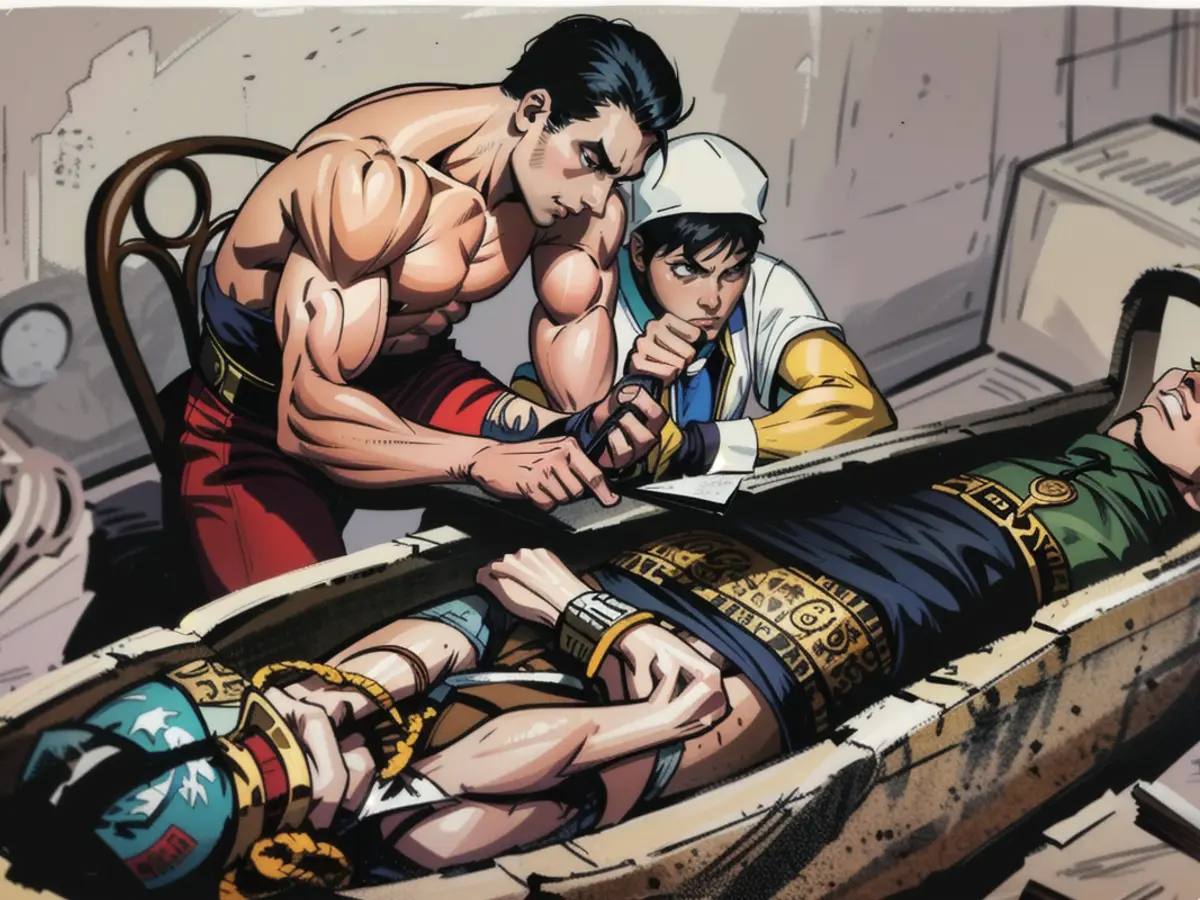Famed finder of Tutankhamun's tomb passes away in solitude.
Fifteen decades ago, Howard Carter came into this world in plain surroundings. Yet, he cemented his place in history through the unveiling of Tutankhamun's royal tomb. Although acknowledged internationally, Carter's accomplishments were largely unrecognized in his home country.
In excitement, British Egyptologist Howard Carter declared, "I saw wonderful things" when he became the first in over 3,000 years to witness the inner chambers of Pharaoh Tutankhamun's burial site in 1922. This discovery, known as a pivotal moment in archeology, has remained synonymous with the name of this visionary. Hailing from London, Carter was born on May 9, 1874.
Carter wasn't just the leader of the expedition; he was also primarily responsible for documenting the discoveries. He painstakingly documented everything, which took a decade. Images of chariots, statues, furnishings, and treasure-laden containers filled with funerary objects, and not least the lavishly decorated death mask took over the world, sparking renewed fascination with Egypt.
Carter hadn't been born into affluence. He hailed from a household of craftsmen and artisans, asserts historian Sue Gattuso. The retired woman, who had also worked as a German teacher, has spent the past three decades studying Carter. She contributed to creating a permanent exhibit on the Egyptologist at Swaffham Town Museum. His parents were from the Norfolk county town where he resided part of his childhood.
Carter displayed aptitude
Carter had no formal education in the field. The introduction to Egyptology occurred through the Amherst family, for whom Carter's father worked and possessing a notable collection of ancient Egyptian items in their residence. Like his father, Carter wished to become a painter, impressing the Egyptologist with his skill of illustrating these artifacts. This led to his recruitment as a draftsman for an expedition to Egypt at the age of 17.
Over the span of years, Carter ascended to the position of Inspector General of the Egyptian Antiquities Authority. However, he lost his post because he resisted making amends to the French after a disagreement involving his Egyptian colleagues and French tourists. Known for his stubbornness, Carter was difficult to collaborate with.
He later formed an alliance with the English aristocrat Lord Carnarvon, acquiring the license for excavations in the Valley of the Kings, Luxor. Following several unsuccessful attempts to uncover burial sites within the legendary necropolis encompassing ancient Thebes, Carnarvon faced the financial shutdown of excavations. Suddenly, the team stumbled upon the path leading to a burial chamber.
According to Sue Gattuso, Lord Carnarvon granting exclusive editorial rights of the London Times for reporting on the discovery was a significant error, leading to flurrying speculation about the seemingly supernatural aspect. The media "had nothing else to report on this global news that had been found and had no other source but the Times," explains the historian.
Tomb supposedly cursed
Upon Carnarvon's passing a short while later, caused by an infection from a shaving cut, this was equated with a curse. The myth was perpetuated by renowned novelists, such as Arthur Conan Doyle and Marie Corelli, who basked in the attention of the press, spreading wild theories about the alleged curse. Carter, on the other hand, scoffed at the whole affair, dubbing it "tommy-rot" (rubbish).
Carter was a gifted wordsmith and authored several books on "King Tut," as Pharaoh Tutankhamun is commonly referred to. He maintained financial solvency as an art dealer and by selling his artistic creations. It's considered improbable that Carter intentionally took away some smaller items from the tomb, as alleged after his passing. It's more plausible that he was granted custody under the shifting rules of the period, the historian suggests.
Whilst his exposal of Tutankhamun's tomb gained him global renown, Carter remained unrecognized in his home country. The honor of a knighthood, royal family medal, or an honorary doctorate never materialized for him. Sue Gattuso posits that his humble beginnings might have contributed to this oversight. Additionally, she suspects that his obstinate nature might indicate an autistic disorder. In his latter years, he grew increasingly isolated. At the age of 64, he passed away, attended by only nine mourners at his funeral.
Humble origins, exquisite culinary experiences, and renowned historical figures blended to make Howard Carter a distinctive, enduring legend.
Read also:
- Floods: water levels remain critical in many places
- Snow chaos further restricts Bavaria
- Continuous operation in the flood areas
- Flood situation remains tense in many places
Despite Carter's international acclaim for discovering Tutankhamun's tomb, his contributions were largely overlooked in Ancient Egypt. Furthermore, the artifacts unearthed during his expedition, such as chariots and funerary objects, sparked global interest in Ancient Egyptian Archaeology.
Source: www.ntv.de






